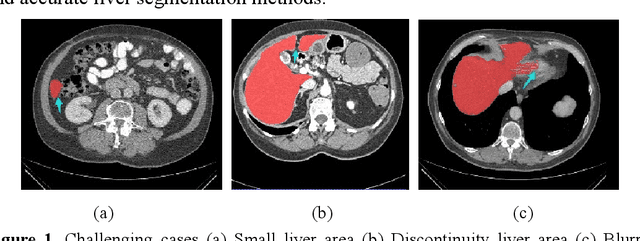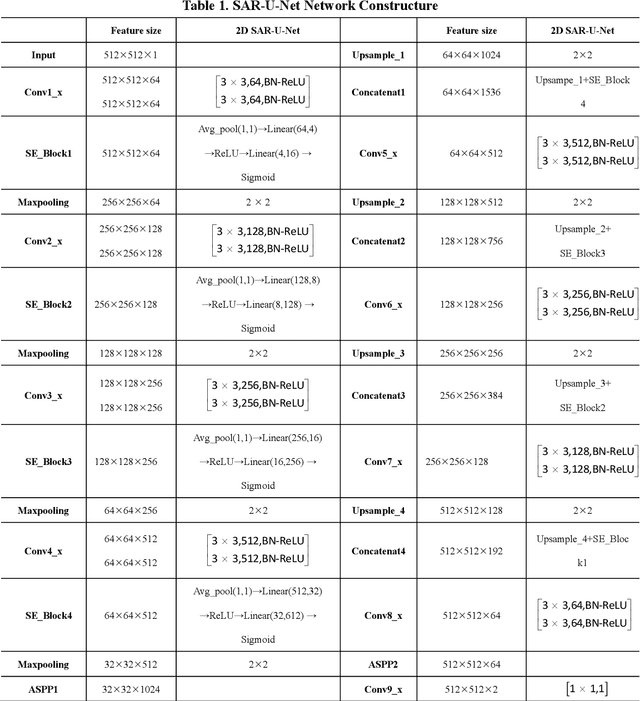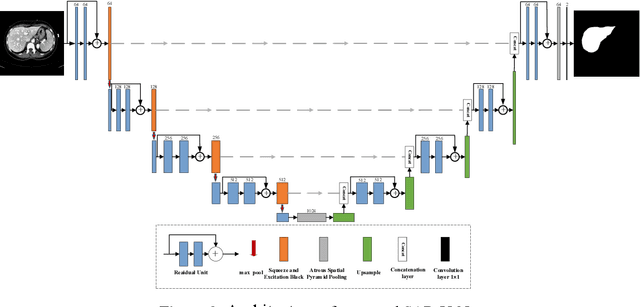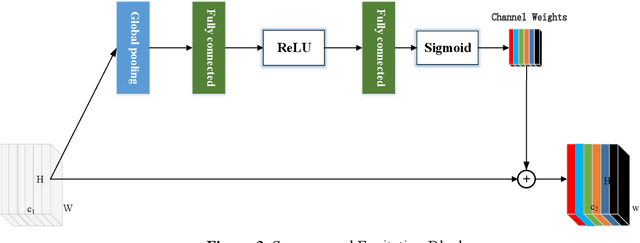SAR-U-Net: squeeze-and-excitation block and atrous spatial pyramid pooling based residual U-Net for automatic liver CT segmentation
Paper and Code
Mar 11, 2021



Background and objective: In this paper, a modified U-Net based framework is presented, which leverages techniques from Squeeze-and-Excitation (SE) block, Atrous Spatial Pyramid Pooling (ASPP) and residual learning for accurate and robust liver CT segmentation, and the effectiveness of the proposed method was tested on two public datasets LiTS17 and SLiver07. Methods: A new network architecture called SAR-U-Net was designed. Firstly, the SE block is introduced to adaptively extract image features after each convolution in the U-Net encoder, while suppressing irrelevant regions, and highlighting features of specific segmentation task; Secondly, ASPP was employed to replace the transition layer and the output layer, and acquire multi-scale image information via different receptive fields. Thirdly, to alleviate the degradation problem, the traditional convolution block was replaced with the residual block and thus prompt the network to gain accuracy from considerably increased depth. Results: In the LiTS17 experiment, the mean values of Dice, VOE, RVD, ASD and MSD were 95.71, 9.52, -0.84, 1.54 and 29.14, respectively. Compared with other closely related 2D-based models, the proposed method achieved the highest accuracy. In the experiment of the SLiver07, the mean values of Dice, VOE, RVD, ASD and MSD were 97.31, 5.37, -1.08, 1.85 and 27.45, respectively. Compared with other closely related models, the proposed method achieved the highest segmentation accuracy except for the RVD. Conclusion: The proposed model enables a great improvement on the accuracy compared to 2D-based models, and its robustness in circumvent challenging problems, such as small liver regions, discontinuous liver regions, and fuzzy liver boundaries, is also well demonstrated and validated.
 Add to Chrome
Add to Chrome Add to Firefox
Add to Firefox Add to Edge
Add to Edge